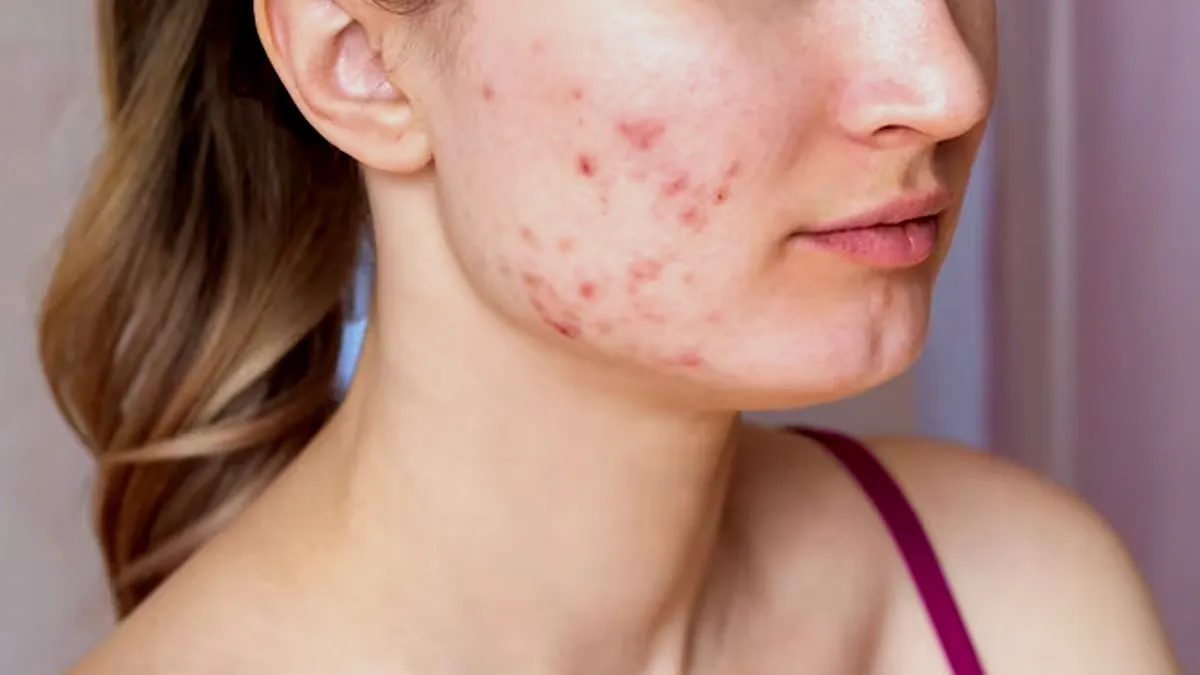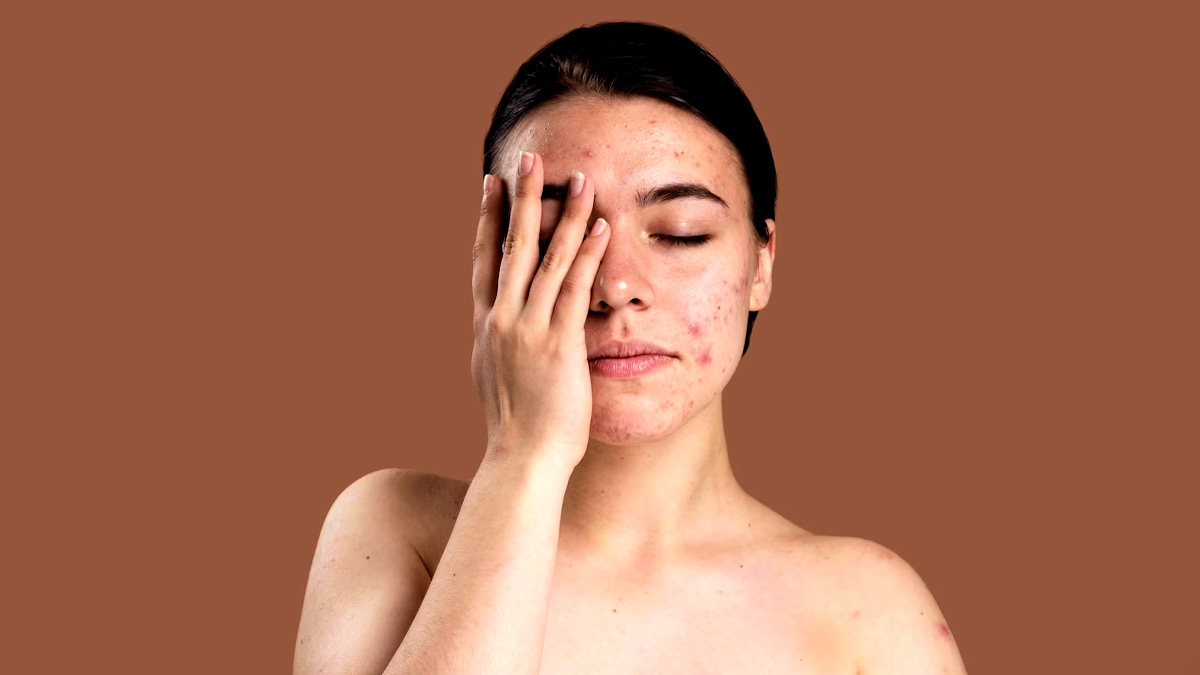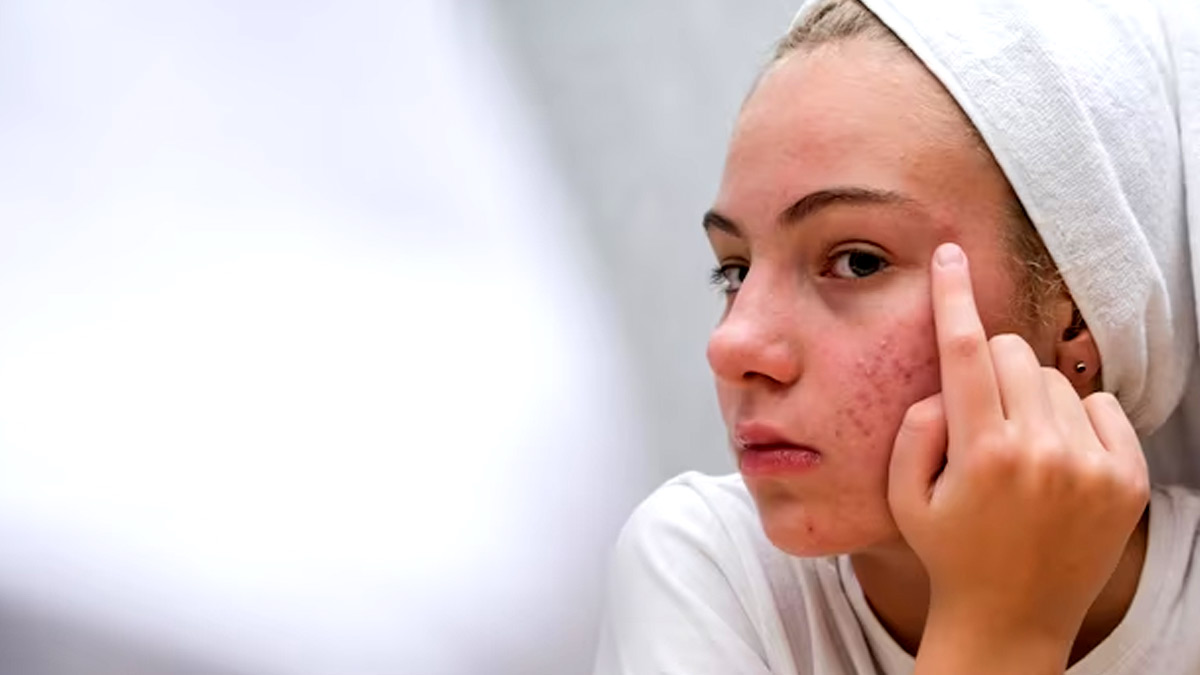
Acne is frustrating especially when it happens long after the teenage years. Even after using several products, following hygiene, anddermatologist consultations, many of us still experience recurring breakouts. Chronic acne is not just a skin-deep problem, ur expert, Dr Kriti Lohia, CEO & Consultant Dermatologist at Aesthetics Redefined by Cocoona Clinic, Gurgaon, said it often is indicative of deeper imbalances or triggers that have been missed and require attention to specific areas.
Table of Content:-
Reasons Breakouts Won’t Go Away
Here are a few reasons why Dr Lohia explained breakouts won’t go away:
1. Hormonal Imbalance
Hormones are important in controlling sebum production. "Changes in androgens, such as during puberty, menstrual cycles, pregnancy, or because of disorders like PCOS, can over-stimulate oil glands," stated Dr Lohia. This excess oil combines with dead skin and bacteria, clogging pores and leading to acne. Treatment in such situations can't be managed with over-the-counter creams or cleansers alone, and hormonal imbalance must often be treated with medication and lifestyle changes.
Also Read: Why Do Retinoids Make Your Skin Worse Before It Gets Better? Expert Tells

2. Misusing or Overusing Skincare Products
The most frequent of all common errors is changing products too frequently or washing the skin too much. "Applying several actives such as salicylic acid, benzoyl peroxide, and retinoids in combination can be irritating to the skin barrier," warned Dr Lohia. This creates inflammation, dryness, and even rebound oiliness, of all things, an ironic acne aggravation. The solution is a dermatologist-recommended balanced routine with gentle cleansers, non-comedogenic moisturisers, and targeted actives applied properly.
3. Hidden Dietary Triggers
Diet greatly influences the health of the skin. "Milk products, glycaemic foods, and too much sugar can raise insulin levels, raising sebum production indirectly," explained Dr Lohia. Acne sufferers can see their spots flare up after eating milk, cheese, chocolate, or fried foods. A diet full of antioxidants, omega-3 fatty acids, fresh fruits and vegetables, and whole grains may help improve the skin. Hydrating is also important in keeping the skin's balance in check.
Also Read: Is Your Dirty Towel Ruining Your Skin? Find Out Here

4. Stress and Lack of Sleep
Stress causes the production of cortisol, a hormone that stimulates oil production and inflammation. "Most patients underestimate stress control when treating acne," shared Dr Lohia. Lack of sleep also interferes with the skin's healing cycle, prolonging the process to recover from breakouts. Adding relaxation exercises such as yoga, meditation, or even just keeping a regular sleep schedule can lead to significantly healthier-looking skin in the long run.
5. Touching and Picking at the Skin
Repeated face touching spreads germs and dirt from hands onto skin, aggravating infection. "Popping acne can provide temporary relief but it results in scarring, pigmentation, and delayed healing," advised Dr Lohia. Hands should be avoided from coming near the face and allowed to let topical or doctor-prescribed treatments take effect.
6. Underlying Medical Conditions
Sometimes acne can be a sign of an internal health problem like thyroid disorder, insulin resistance, or digestive imbalance. "If the acne is not responding to topical and oral medications, one should look for internal reasons with blood tests," said Dr Lohia. Fixing the imbalances and identifying them usually brings long-term relief from recurrent breakouts.
Bottomline
Chronic acne usually indicates underlying hormonal, lifestyle, or skincare problems that cannot be resolved in a day. Being aware of the causative factors and taking timely dermatological advice from experts such as Dr Kriti Lohia can aid in attaining long-term, clear, and healthy skin.
Also watch this video
FAQ
1. Is hormonal acne curable forever?
Hormonal acne is best controlled by a combination of treatment with medicines, a balanced diet, and stress management, although recurrence may occur if hormonal imbalances continue.2. How quickly do treatments for acne begin to work?
There is visible improvement after 6 to 8 weeks of regular, dermatologist-supervised care. Patience and compliance with schedules are essential.3. Can one make use of home remedies for acne?
Though mild home remedies can calm inflammation, they usually don't treat underlying causes and may even irritate the skin sometimes. Treatments approved by dermatologists are always better and safer.
How we keep this article up to date:
We work with experts and keep a close eye on the latest in health and wellness. Whenever there is a new research or helpful information, we update our articles with accurate and useful advice.
Current Version
Nov 09, 2025 11:15 IST
Published By : Chanchal Sengar
